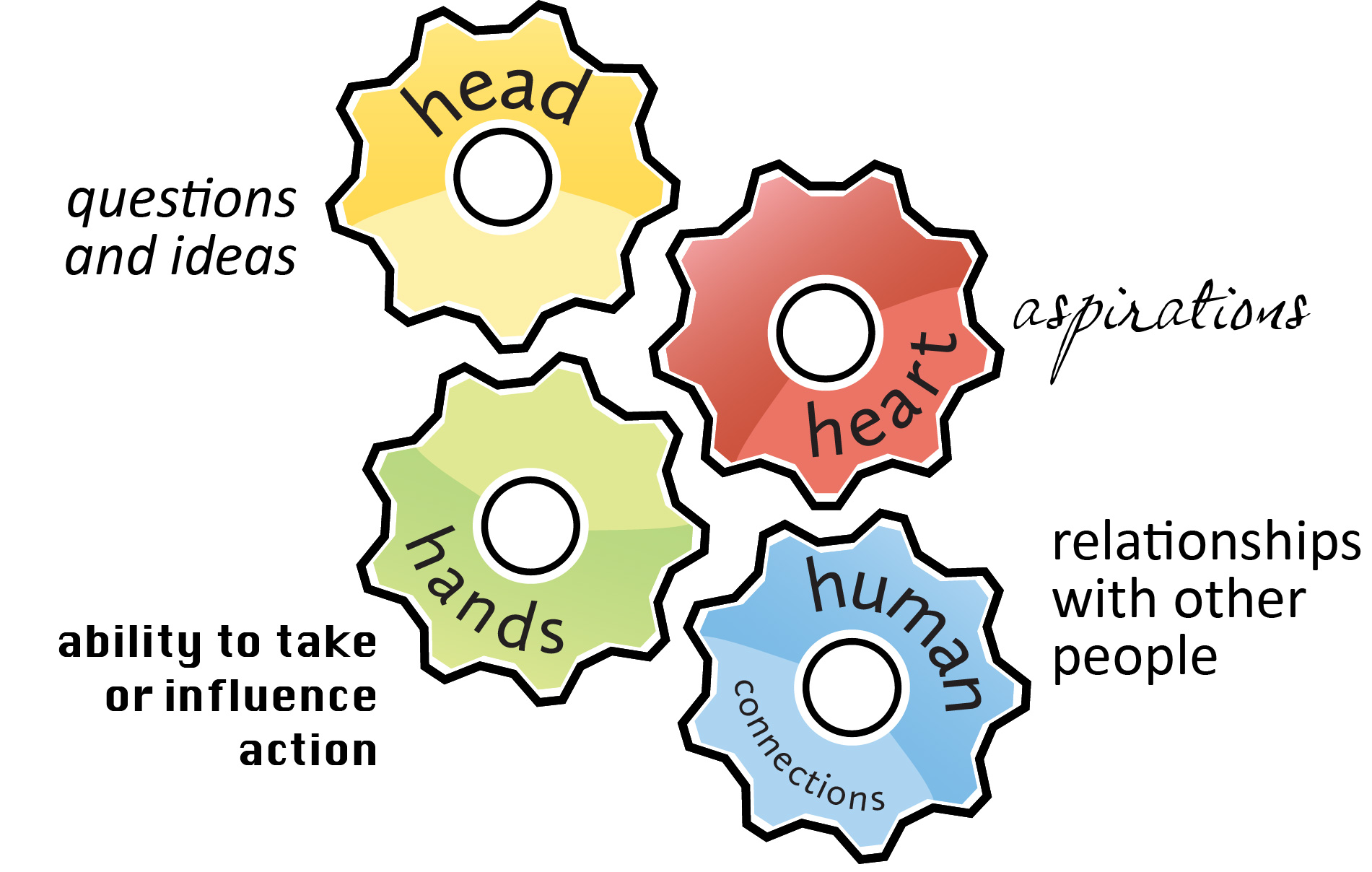Taking Yourself Seriously
Processes of Research and Engagement
Peter Taylor and Jeremy Szteiter ©Second edition, Work in Progress, 29 October 2018
| Taking Yourself Seriously: Processes of Research and Engagement is designed for college students as well as more experienced professionals who want to further their development as researchers, writers, workshop facilitators, and agents of change. A wide range of tools and processes for research, writing, and collaboration are defined and described—from Governing Question to GOSP, Plus-Delta feedback to Dialogue Hours, and Supportive Listening to Sense of Place Map. The tools and processes are linked to four frameworks that lend themselves to adaptation by teachers, advisors, and collaborators, which consist of the following: A set of ten Phases of Research and Engagement, which researchers move through and later revisit in light of other people's responses to work in progress and what is learned using tools from the other phases; Cycles and Epicycles of Action Research, which emphasizes reflection and dialogue to shape ideas about what action is needed and how to build a constituency to implement the change; Creative Habits for Synthesis of Theory and Practice in major writing projects; and Connecting-Probing-Reflecting Spaces, in which participants support and learn from each others' inquiries. Researchers and writers working under these frameworks participate especially in Dialogue around Written Work, Making Space for Taking Initiative In and Through Relationships, and Refractive Practice—pausing to take stock and identify alternative paths before proceeding. These processes help researchers and writers align their questions and ideas, aspirations, ability to take or influence action, and relationships with other people. Many of the tools, processes, and frameworks are illustrated through excerpts from two projects: one engaging adult learning communities in using the principles of theater arts to prepare them to create social change; the other involving collaborative play among teachers in curriculum planning. Think-pieces that make up the final section recount passages in the authors' ongoing journeys, providing points of departure for readers' own explorations and affirming everyone's ability to experiment and shape their own work and lives. |
Front Matter (Acknowledgements, etc.)
Overview (origins of the book and how to use it, overviews and interrelationship of the four frameworks in part 1, and prefiguring of think-pieces in part 4)
1. PHASES, CYCLES, HABITS and SPACES
(with details of tools and processes left to Part 2)- Cycles and Epicycles of Action Research
(Tools and Processes of Cycles and Epicycles of Action Research)
2. TOOLS AND PROCESSES
- Tools and Processes, in alphabetical order
3. ILLUSTRATIONS
- Illustrations of Phases (JS's project)
- Illustrations of Cycles and Epicycles (JS's project)
4. PASSAGES
Commentaries from students and workshop participants
About the Authors
